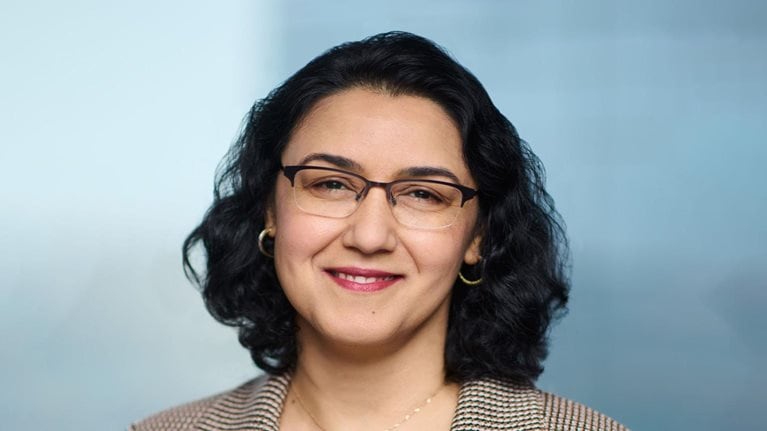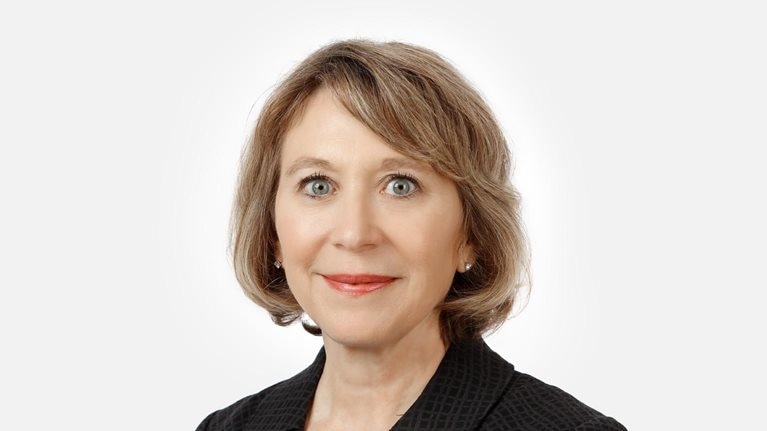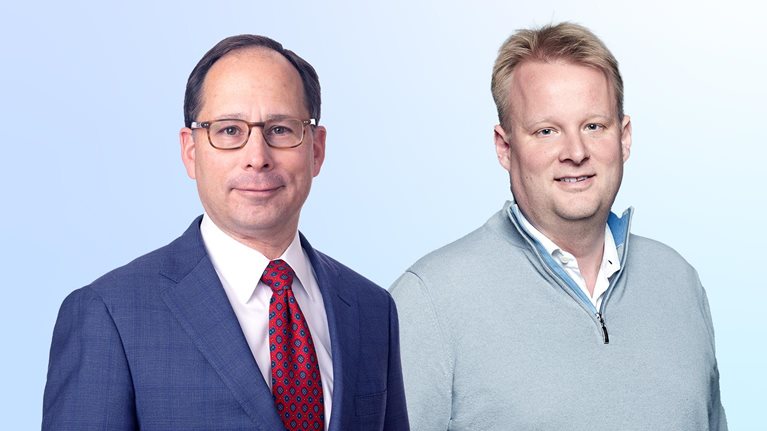Barbara Karuth-Zelle, COO and board member of Allianz, is passionate about driving technology and AI innovation for a sustainable future. She’s spent more than 20 years at the insurer—including as CEO of Allianz Technology, its internal technology service provider—and is known for her ability to assemble diverse teams that get things done quickly. Karuth-Zelle spoke with McKinsey senior partner Jörg Mußhoff about generative AI (gen AI), digital transformations, sustainability, and women in the insurance industry. An edited transcript of their conversation follows.
McKinsey: What emerging technologies do you see as having the greatest potential to disrupt insurance operations, and how should the industry prepare for these changes?
Barbara Karuth-Zelle: Insurance is a data-driven business, so it will benefit greatly from gen AI, which can simplify our work. We’ve been working with other forms of AI for over 20 years, and the latest iteration with gen AI has opened up a new world of possibilities.
I see three main strategies for the industry to use gen AI. First, every solution needs to be human-centric. In my view, this is the essence of our strategy. That’s why we embrace the step the European Union has taken with the AI Act, which is aimed at regulating the technology while ensuring certain ethical standards and respecting fundamental rights. The idea is to manage data privacy, prevent bias and discrimination, and bring about transparency for everyone where AI is involved.
Second, our employees need to be part of the development and the story. That means reskilling and retraining. We are providing a basic internal ChatGPT instance, encouraging colleagues to experiment on local and some specific global use cases, and offering intensive AI training to teach them new skills, such as building prompt libraries. Our internal ChatGPT instance is embedded in a responsible framework. That means our data remains confidential and is not shared with third parties, and we are ensuring the output is accurate and not discriminatory.
Finally, we need to scale key use cases, such as in the areas of claims coverage, catastrophe prediction, hyper-personalization in marketing and customer relationship management, underwriting coverage checks, training, document management—in every part of the business—and, of course, software development.
McKinsey: What core success factors do you see in digital and AI transformations, particularly in the context of large insurance companies?
Barbara Karuth-Zelle: Digital and AI transformations are not mainly about the technology but rather the mindset, the people, and the organization—along with the right team to drive the transformation. We need to constantly adapt and readapt as technologies and practices change.
For me, the foundation for a successful transformation is the mindset of sharing, curiosity, creativity, and a can-do attitude. This goes along with an agile way of working and a diverse, experienced, expert, and inclusive workforce that gets the most out of people’s talents.
Organizationally, it’s important to strive for constant simplification throughout the company—in all products, processes, and technologies—to ease customers’ lives by offering straightforward and intuitive solutions everywhere and anytime. This allows a company to scale innovation quickly and adopt new technologies. Just like with the example of AI, everything needs to have the human in the middle.
McKinsey: You have led several transformation projects. Which of them challenged or excited you the most? What did you learn?
Barbara Karuth-Zelle: Allianz, founded in 1890, has a rich history of tech innovation. It was built through many acquisitions, all coming with their own histories—and tech platforms. To lead a transformation, you need people with resilience and creativity. Allianz has achieved a huge amount of simplification and harmonization over the years, and now we have arrived at a paradigm of continuous transformation.
From 2016 to 2020, I was the CEO of our internal technology provider, Allianz Technology. One very hard thing to crack was the collective transformation of Allianz’s entire tech infrastructure—everything from data networks and data centers to identity management at our workplaces. Was doing it all at once the right way? Hard to say. But that decision led to our cutting the Gordian knot of choosing where to start first and what dependencies to consider.
Considering the incredible diversity of technology landscapes we started with, it was the right approach to first narrow down the collection to a few shared platforms and evolve these continually instead of investing in multiple platforms with similar functionality, even if that first step is politically hard and takes longer than you want. That move made us faster in migrating toward new technology and in scaling innovation quickly. As an example, we consolidated about 100 different intranets into a single common platform over roughly seven years, but when we made the decision to migrate to a new platform, that iteration took only about a year.
We also went through continuous transformation at Allianz Technology during my five years there, even as we implemented these huge technology transformation projects. The tech transformation was the most exciting journey in my career, as I learned so much about the importance of clear scope, clear KPIs, the right people, a change mindset, taking on projects that aren’t too big and aren’t too small, and delivering as quickly as possible.
McKinsey: How can a COO contribute to the sustainability agenda of an insurance company in tech and operations?
Barbara Karuth-Zelle: For me, it’s through finding efficiencies in the organization and using my personal sphere of influence to promote sustainability. Efficiency is no longer just about time and money but is now also about minimizing all our resource needs—for example, digitizing processes instead of having them on paper.
Enforcing standards, such as paper reduction, energy use, and energy sourcing, is a key way to achieve this. We insist that our data centers use renewable energy sources and that our websites use low-energy graphics and videos, and I’m even looking critically at large-language-model-based AI, which uses a huge amount of energy in its training. The standards themselves stem from transition targets that are part of our group strategy. We have said very clearly how we plan to reduce greenhouse gas emissions through sustainable vehicles or pushing for videoconferencing instead of travel. With targets, we hold ourselves accountable.
Finally, there is simply the personal influence a senior executive can have. I am extremely passionate about protecting biodiversity in the oceans because they are our global “lungs.” To quote an ocean activist, “If the oceans die, we die.” I use my visibility to advocate publicly and to help set up partnerships between Allianz and entities such as Sea Shepherd to fight plastic waste in the Mediterranean, Plastic Fischer to prevent plastic in Indian rivers from entering the ocean, and Enaleia to turn old fishing nets into useful objects.
McKinsey: Allianz is one of the few large European insurers with four women on its management board, achieving near parity among men and women on the nine-member panel. What steps has Allianz taken to achieve this, and what can other insurers learn from its approach?
Barbara Karuth-Zelle: I’m very proud to work for Allianz, a truly diverse company in many aspects. There is space for everyone because we actively decided to address this and ensure we get more diversity in leadership roles.
Going further down the ladder, to give women a more level playing field for wherever they want to go in their careers, we are asking more questions about what they need, allowing more flexible work models, and rethinking our talent models and leadership formats. I sponsor a series of internal webinars featuring women in senior tech roles because this space is often seen as male dominated.
My advice, applicable to everybody: if you need something, please ask for it. This opens discussions and can open doors. Speak up if you want to make a change.


